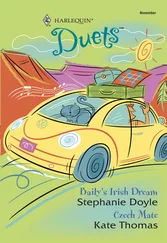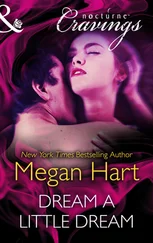Zhang Shu could feel the hot liquor on his foul breath.
“In a couple of days, there’s going to be a big Buddhist ceremony up at Sanwei Mountain Temple. At that time, I’ll figure out a way to get the key to Cave Seventy-three for you. You want to have a look at the Lakshmi cave, don’t you?” The old man whispered mysteriously.
Zhang Shu felt a shock deep within.
“Really?”
“Why would I lie to you?”
“Is it okay if I take Xiao Xingxing?”
The old man shook his head. “I give an inch and you want to take a mile. Aren’t you afraid of ruining your luck by taking a woman there in the evening?”
Zhang Shu didn’t insist. When he went to see Xiao Xingxing, as he usually did after eating, he found her light out and her door locked.
4
Zhang Shu stood absentmindedly in front of the unlocked wooden door of Cave 73 before approaching it with determination. The door creaked as he pushed it open. The cave was black as pitch inside. He cautiously turned on his flashlight before closing the door behind him.
It was a world unto itself. Almost unconsciously his flashlight first swept over the image of the emissary Ananda, which smiled as usual. Its secretive smile was so strikingly similar to Dayejisi’s smile carved out of wood that he wondered if he wasn’t posing as that polychrome sculpture. He felt like kicking it to see if it would crumble like a half bag of flour into a heap.
He pulled his eyes away from the statue to look at that empty space. It was the same as ever, not a single hue had been added for his evening visit. He could only vaguely discern the remnant of a lotus petal, half of a plump white foot with reddish toes, and a bunch of pearls. He squatted, nearly pressing his face against the wall, persisting in his search. He seemed to smell an unusual scent, a delicate fragrance like that of tree resin.
Later a ray of bright light — ten times stronger than his flashlight — shot in from behind him. He looked back, but the bright light forced him to close his eyes. All he could make out were silver filaments of light.
“Who’s there?” His shout sounded feeble even to himself.
“I’m the protective deity of this sanctuary.”
He heard a woman’s voice. It was not a young voice and it had a northwestern accent. He blocked the strong light with his hand hoping to get a good look at the woman.
“Do you think I’d let you see me? Ha-ha-ha. .” Her laughter was hearty, as if she had grown up herding and shouting at cattle and sheep on the plains. She stubbornly shone a huge flashlight, much stronger than his, into his face. Her laughter seemed to bring everything in the dark cave to life, as if both Kasyapa and Ananda were mocking him in the darkness.
“Put down your flashlight and listen to what I have to say.” He had a sudden inspiration and thought of that woman who looked like Guanyin. Right or wrong, he had to play this card.
“I have a special visitor’s pass signed by Pan Sumin. If you don’t believe me, you can call her.”
His words seemed to have the effect of a prayer on the iron hoop of the Monkey King. A moment of silence followed before the light moved upward like a torch, shining on the ceiling of the cave. He immediately turned his light on her. It was the face of a fifty-year-old woman, her head in a gray scarf, from which several white hairs protruded. Her black robe and gray vest were dark. Her eyes, like a dead man’s, were fixed on him. It was that same minority woman.
“Oh, so it’s you. So you are Chief Pan’s guest?” The voice remained skeptical.
“Yes.”
“Let me see your papers.”
She took the special visitor’s pass and scrutinized it, pressing it close to her eyes, as if she were smelling it.
“What are you doing here in the middle of the night? Didn’t you see enough during the day?”
“No.”
“What is it that you wish to see?”
“This painting.” He used his flashlight to point at the empty space.
She swayed a bit. “What is it that you are up to?”
“. . I’m researching this.”
“Oh, so you are engaged in research on the frescoes? Are you from Beijing?”
“Yep.”
She seemed to heave a sigh of relief. “Why didn’t you say so? It’s easy to examine this painting. Although it was stolen, I still have the original in my possession.”
“What do you mean by original?”
“This painting dates from the late Tang dynasty and is a copy. The original was painted by Yu-Chi Yiseng.”
“You’re saying that you have Yu-Chi Yiseng’s original work?” Zhang Shu’s throat seemed to contract.
“It’s not mine.” The woman didn’t seem to understand what he meant by original work.
“You have it?”
“Yes.”
“Can I see it?” He said in a low and anxious tone of voice. He felt a pang of fear that she might refuse him.
“Why not?” replied the woman, as unconcerned as if someone wanted to borrow a rag.
He was speechless.
“I’d like to know why you are so interested in this particular painting,” said the woman, suddenly raising her head. In the light, the wrinkles on her forehead resembled cart tracks. Zhang Shu recalled how she walked alone outside Cave 73. He was suddenly filled with fear.
“I’m. . very interested. . in. . Lakshmi. I. . think. . Yiseng’s painting. . isn’t of the real goddess.”
“Oh! Ha-ha-ha,” the woman laughed madly again. “The real goddess Lakshmi? You tell me. .”
“Lakshmi is described differently in Hinduism, Brahmanism, and Buddhism, and Tibetan Buddhism depicted her as a fierce demon. What was her original form? Why is she a goddess to so many religions?”
“You are very observant,” laughed the woman, mocking him. “Why so many ‘whys’?” she said, placing emphasis on the word why , imitating him. “The Goddess Gongdetian was married to the Deva King of the North! The Deva King could do whatever he liked with her. What’s so hard to understand about that? Do you know about the Deva King?”
“I know about him, Deva King Vaisravana of the North, one of four deva kings.”
“Did you know that the four great deva kings are also referred to as the four vajras? They are the heavenly spirits who hold vajra staffs and protect the Dharma. They are also yakshas. Are they fierce looking? Take a look at the four corners of this cave.” She raised her large flashlight and shined it at the ceiling. The four deva kings were painted at the four corners.
The flashlight played over the blue faces and fangs like a spotlight on a stage. Shadows floated above the colorful statues. Zhang Shu felt a shiver down his spine.
“Do you know about China’s Two Generals of Hengha?” The woman removed her scarf releasing a disheveled mass of dirty gray hair. “Actually they were vajra demigods. At one time there was only one vajra demigod, who was called Dharma-mati. But in China it is said that divine status was conferred upon the Two Generals of Hengha after the deaths of Zheng Lun and Chen Qi, but there is no mention of this in the Buddhist scriptures.”
“Of course there isn’t — that’s from The Investiture of the Gods .”
The woman laughed grimly. “You know a lot. That classical novel of heroes and gods says that the four great deva kings were generals of Mara, the Destroyer. They were sent west by Jiang Taigong to serve as the deva kings. I suppose you know about that, too?”
“There’s nothing strange about that, after all the Chinese sinicized Buddhism. Didn’t Vaisravana later become Deva Li Who Holds a Stupa?”
“You don’t know crap.” The woman blinked her eyes continuously as she spoke, as if she were proud of her own Buddhist knowledge. “That happened in the Song dynasty. By the Yuan dynasty, they were in charge of good weather for crops, and even the implements used in worship had changed!”
Читать дальше
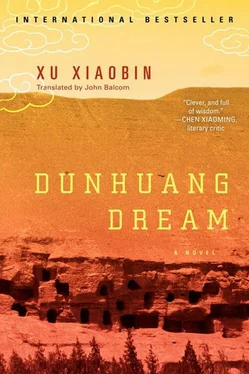


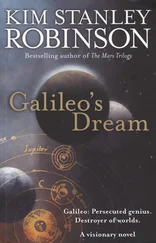
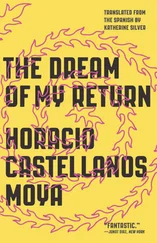

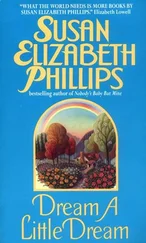
![Theresa Cheung - The Dream Dictionary from A to Z [Revised edition] - The Ultimate A–Z to Interpret the Secrets of Your Dreams](/books/692092/theresa-cheung-the-dream-dictionary-from-a-to-z-r-thumb.webp)
